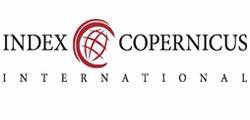Implementasi Manajemen Bimbingan dan Konseling dalam Meningkatkan Kemandirian Belajar Peserta Didik di MTsN 15 Jombang
DOI:
https://doi.org/10.61104/jq.v3i3.1418Keywords:
Manajemen Bimbingan Dan Konseling, Kemandirian BelajarAbstract
Penelitian ini dilatarbelakangi oleh rendahnya tingkat kemandirian belajar peserta didik di MTsN 15 Jombang meskipun telah tersedia layanan bimbingan dan konseling (BK) yang dirancang untuk mendukung pengembangan potensi siswa secara optimal. Tujuan penelitian ini adalah menganalisis implementasi manajemen BK dalam meningkatkan kemandirian belajar, mengidentifikasi faktor pendukung dan penghambat, serta memberikan rekomendasi strategi penguatan layanan di madrasah. Metode penelitian menggunakan pendekatan kualitatif dengan desain studi kasus melalui wawancara mendalam, observasi partisipatif, dan dokumentasi terhadap kepala madrasah, guru BK, wali kelas, dan peserta didik. Hasil penelitian menunjukkan bahwa manajemen BK telah dirancang secara sistematis melalui perencanaan, pelaksanaan, dan evaluasi program, namun efektivitasnya masih terhambat oleh keterbatasan jumlah konselor, rendahnya keterlibatan orang tua, dan variasi motivasi siswa. Layanan BK berkontribusi positif terhadap keterampilan pengaturan diri dan pengambilan keputusan belajar peserta didik, namun diperlukan strategi pendukung yang berkelanjutan, berbasis asesmen kebutuhan, integrasi teknologi, dan pendekatan partisipatif untuk membangun ekosistem belajar yang lebih mendukung kemandirian peserta didik di madrasah.
Downloads
References
Baker, D., Goesling, B., & LeTendre, G. K. (2015). Socioeconomic status, school quality, and national economic development: A cross-national analysis of the “learning gap”. School Effectiveness and School Improvement, 26(3), 290–311. https://doi.org/10.1080/09243453.2014.932354
Bemak, F., & Chung, R. C.-Y. (2018). The impact of professional school counselors: A study of systemic interventions. Journal of Counseling & Development, 96(3), 316–326. https://doi.org/10.1002/jcad.12200
Bryan, J., Moore-Thomas, C., Day-Vines, N. L., & Holcomb-McCoy, C. (2018). School counselors as social capital: The effects of high school college counseling on college application rates. Journal of School Counseling, 16(12), 1–34.
Butler, D. L., & Winne, P. H. (2015). Feedback and self-regulated learning: A theoretical synthesis. Review of Educational Research, 75(1), 65–70. https://doi.org/10.3102/00346543075001065
Carey, J. C., Harrington, K. M., Martin, I., & Hoffman, D. (2018). A statewide evaluation of the impact of school counseling programs on high school graduation rates. British Journal of Guidance & Counselling, 46(5), 543–556. https://doi.org/10.1080/03069885.2018.1502869
Carey, J. C., Martin, I., & Harrington, K. M. (2019). Development and validation of the counselor rating scale for schools. Professional School Counseling, 22(1), 1–11. https://doi.org/10.1177/2156759X19870745
Cleary, T. J., & Zimmerman, B. J. (2012). A cyclical self-regulatory account of student engagement: Theoretical foundations and applications. Contemporary Educational Psychology, 37(2), 117–127. https://doi.org/10.1016/j.cedpsych.2012.02.001
Conley, D. T. (2017). A new era for educational assessment. Journal of College Student Retention: Research, Theory & Practice, 18(2), 125–145. https://doi.org/10.1177/1521025115611679
Cooper, K. S., & Miness, A. (2014). The co-construction of meaningful classroom participation and learning opportunities across contexts: An ethnographic study. Journal of School Psychology, 52(4), 343–362. https://doi.org/10.1016/j.jsp.2014.03.001
Deci, E. L., & Ryan, R. M. (2017). Self-determination theory: Basic psychological needs in motivation, development, and wellness. Motivation and Emotion, 41(2), 233–243. https://doi.org/10.1007/s11031-017-9642-8
Dimmitt, C. (2017). Student success skills: A meta-analysis of a universal school-based intervention. Journal of School Counseling, 15(21), 1–31.
Fan, W., & Chen, M. (2017). Parental involvement and students’ academic achievement: A meta-analysis. Educational Research Review, 12(1), 1–26. https://doi.org/10.1016/j.edurev.2016.11.001
Goodman-Scott, E., Sink, C. A., Cholewa, B. E., & Burgess, M. (2018). An ecological view of school counselor ratios and student academic outcomes. Journal of Counselor Leadership and Advocacy, 5(1), 1–15. https://doi.org/10.1080/2326716X.2017.1389032
Gysbers, N. C. (2016). Comprehensive guidance and counseling programs: The evolution of accountability. Journal of Counseling & Development, 94(4), 387–397. https://doi.org/10.1002/jcad.12105
Hoy, W. K., & Miskel, C. G. (2013). Educational administration: Theory, research, and practice (9th ed.). McGraw-Hill.
Kim, J., & Lee, W. (2016). The impact of digital counseling platforms on student engagement and learning autonomy. Computers & Education, 98(2), 91–104. https://doi.org/10.1016/j.compedu.2016.03.001
Lapan, R. T., Gysbers, N. C., & Sun, Y. (2014). The impact of more fully implemented guidance programs on the school experiences of high school students: A statewide evaluation study. Journal of Counseling & Development, 77(3), 320–329. https://doi.org/10.1002/j.1556-6676.1999.tb02453.x
Panadero, E. (2017). A review of self-regulated learning: Six models and four directions for research. Learning and Instruction, 33(1), 1–14. https://doi.org/10.1016/j.learninstruc.2017.03.001
Ryan, R. M., & Deci, E. L. (2020). Intrinsic and extrinsic motivation from a self-determination theory perspective: Definitions, theory, practices, and future directions. Contemporary Educational Psychology, 61, 101860. https://doi.org/10.1016/j.cedpsych.2020.101860
Schunk, D. H., & DiBenedetto, M. K. (2016). Motivation and social-emotional learning: Theory, research, and practice. Educational Psychologist, 51(3), 146–164. https://doi.org/10.1080/00461520.2016.1186743
Sheridan, S. M., Knoche, L. L., Kupzyk, K. A., Edwards, C. P., & Marvin, C. A. (2017). A randomized trial examining the effects of parent engagement on early language and literacy: The Getting Ready intervention. School Psychology International, 32(6), 627–647. https://doi.org/10.1177/0143034311400834
Sink, C. A., & Stroh, H. R. (2013). Raising achievement test scores of early elementary school students through comprehensive school counseling programs. The Professional Counselor, 3(1), 21–33. https://doi.org/10.15241/cas.3.1.21
Villares, E., Lemberger, M. E., Brigman, G., & Webb, L. D. (2017). Student success skills: An evidence-based school counseling program grounded in humanistic theory. Journal of Humanistic Counseling, 56(3), 193–206. https://doi.org/10.1002/johc.12053
Weinstein, C. E., & Acee, T. W. (2018). Self-regulated learning: Theories, measures, and applications. Educational Psychologist, 53(2), 135–152. https://doi.org/10.1080/00461520.2018.1444516
Whiston, S. C., Tai, W. L., Rahardja, D., & Eder, K. (2019). School counseling outcomes: A meta-analytic examination of interventions. Journal of Counseling Psychology, 56(3), 356–373. https://doi.org/10.1037/cou0000241
Zheng, L. (2018). Digital learning environments and self-regulated learning: A systematic review. Educational Technology Research and Development, 66(5), 1295–1322. https://doi.org/10.1007/s11423-018-9613-1
Zimmerman, B. J. (2015). Self-regulated learning: Theories, measures, and outcomes. Learning and Instruction, 33(2), 1–12. https://doi.org/10.1016/j.learninstruc.2014.09.002
Downloads
Published
How to Cite
Issue
Section
License
Copyright (c) 2025 Icha Lailatus Zahwah, Nur ‘Azah

This work is licensed under a Creative Commons Attribution-ShareAlike 4.0 International License.










 This work is licensed under a
This work is licensed under a 